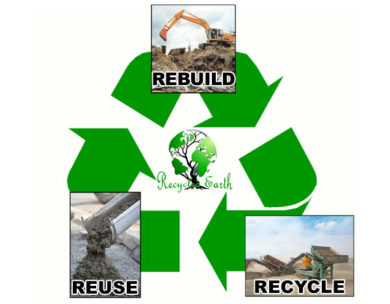
We repeat – 29 percent.
Things like lumber, drywall, plastics, metals, carpeting and masonry are commonly just discarded into an on-site dumpster, rather than sorted and responsibly disposed of. Why? Possibly because it’s easier just to throw the items out and not take the time to properly sort such materials. But another plausible reason for failing to recycle the aforementioned materials is lack of awareness that such materials can actually be recycled. Think about it – the term “demolition” does allude to waste.
So are the materials worth recycling? Simply to better the environment – yes. But there’s actually cost savings in construction and demolition recycling:
- Concrete: Moving concrete from job site to landfill can be very costly. Recycling concrete is actually a lot cheaper. Demolition and construction concrete can take on a second life by being grounded down into pebbles and used as a cement aggregate.
- Metals: Scrap metal is big business and can actually put more money into the pockets of contractors by recycling such materials, rather than by just tossing it away. Pipes, fixtures and appliances are common sources of scrap metal that can be recycled for cash.
- Other materials: Drywall is the most common material that is used in the interior of structures – and old pieces of it can easily be reused to make new drywall sheets. The same can be said about carpeting.
Yes, recycling demolition and construction materials is important – and can be a win-win, both for the environment and for your bottom line. But how do you go about recycling such materials? Simple – just check in your local area to see what area facilities accept such materials. That’s the easy part. The hard part is separating the materials into the various categories for recycling. When you’re dealing with so much volume, that can be a challenge. While the various facilities might be able to assist, it’s best to recover and then sort through materials to dictate what is waste and what is not – and industrial equipment can help with that.
For more information on the importance of recycling construction and demolition materials and to learn about recycling systems and equipment, contact General Kinematics today.






